#Hybrid Mobile App Development Services
Text
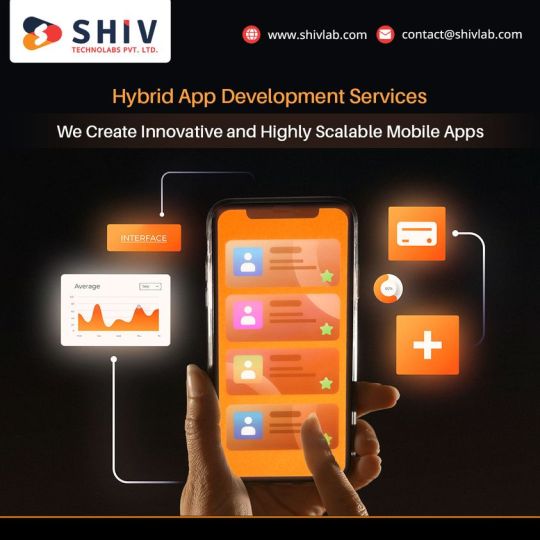
At Shiv Technolabs, our skilled team of mobile app developers develops mobile apps that combine native performance with web technology's flexibility. Whether for iOS, Android, or both, we utilize hybrid mobile app development at its fullest potential.
Being the top hybrid mobile app development agency, our focus is on scalability and user experience ensuring your app reaches a wider audience and engages users effectively. Contact us today to get the best hybrid mobile app development services for your business.
0 notes
Text
0 notes
Text
Some Strategies for Using Mobile Apps to Expand Your Business
In today's digital age, mobile apps have become indispensable tools for businesses looking to expand their reach, enhance customer engagement, and boost revenue streams. NinjaTech, a frontrunner in innovative technology solutions, understands the pivotal role mobile apps play in business growth. you can harness the full potential of mobile apps to expand your business, delight customers, and stay ahead of the competition in today's dynamic marketplace. Seize the opportunity to innovate and evolve, guided by a commitment to excellence and customer-centricity.
#Custom Mobile App Development Services#Hybrid Mobile App Development Services#Top Mobile App Development Company
1 note
·
View note
Text
#Hybrid App Development#hybrid mobile app development#hybrid mobile app development agency#hybrid mobile app development services#Hybrid Mobile Apps#mobile app development#Mobile Apps#native app#Software Development Company
0 notes
Text
Hybrid Mobile App Development Services in Delhi
Looking for professional hybrid mobile app development services in Delhi? Look no further than Appcul, a top-rated app development company offering cutting-edge solutions for businesses of all sizes. Our team of expert developers can help you create powerful, feature-rich hybrid apps that run seamlessly on both iOS and Android platforms. Contact us today to learn more about our services and how we can help your business succeed in the mobile world.
#Hybrid Mobile App Development Services#Hybrid App Development Services#Hybrid App Development Services Company#Hybrid Mobile App Development Company
0 notes
Text
WHAT YOU NEED TO KNOW ABOUT HYBRID APPS FOR TESTING MANAGEMENT
A hybrid app is a type of mobile app that combines elements of both native and web apps. Hybrid App Development Services are built using web technologies such as HTML, CSS, and JavaScript, and are then packaged inside a native app wrapper. This allows them to be distributed through app stores and run on mobile devices, just like native apps.
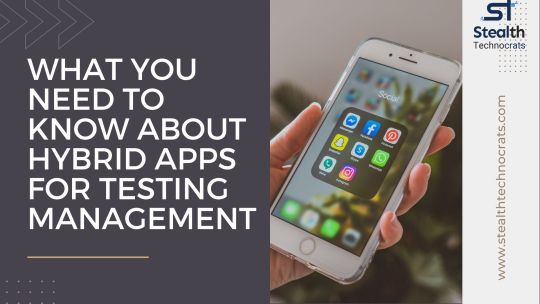
There are several advantages to using hybrid apps for testing management:
Hybrid Mobile App Development Services can be developed and deployed faster than native apps, as they do not require separate development teams for different platforms.
Hybrid apps are easier to maintain, as any updates or changes can be made to the web portion of the app and deployed to all users at once, rather than requiring individual updates for each platform.
Hybrid apps offer a good balance between performance and functionality, as they can access native device features (such as the camera or GPS) while still being able to run on multiple platforms.
Hybrid apps are typically less expensive to develop than native apps, as they do not require separate development teams for each platform.
However, there are also some potential drawbacks to consider when using hybrid apps for testing management:
Hybrid apps may not perform as well as native apps, as they rely on a web view to display content, which can be slower than native code.
Hybrid apps may not have access to all of the same features and functionality as native apps, as some features may be platform-specific and not available through web technologies.
Hybrid apps may not be as visually appealing as native apps, as they may not be able to take full advantage of the design and UI capabilities of each platform.
Overall, Hybrid App Development Services in India can be a good option for testing management, especially if you need to support multiple platforms and want to be able to deploy updates and changes quickly. However, it is important to carefully consider the trade-offs and potential limitations of using a hybrid app before making a decision.
#hybrid app development services#hybrid mobile app development services#hybrid app development services in india
0 notes
Text
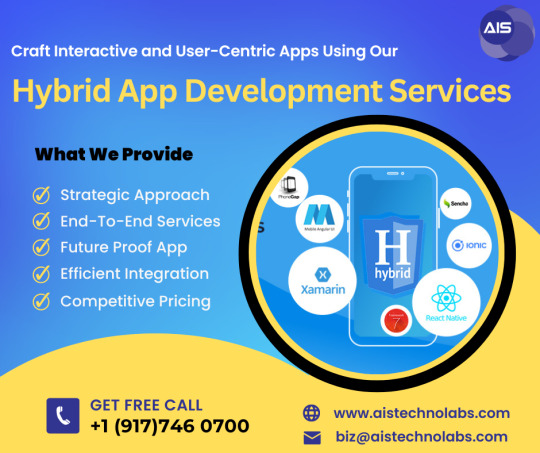
Craft Interactive and User-Centric Apps Using Our Hybrid App Development Services
AIS Technolabs is the leading Hybrid Mobile App Development Company that provides quality Hybrid Apps Development Services as we deliver robust, reliable, and highly functional hybrid applications to market faster on major application platforms.
Visit For More Info : https://www.aistechnolabs.com/hybrid-mobile-app-development-services/
#hybrid app development company#hybrid app development#hybrid app development services#hybrid mobile app development company#hybrid mobile app development services
0 notes
Video
Get Hybrid Mobile App Development Services
Create a high-quality hybrid app for your business that meets your specific needs. Stark Edge is a one-stop solution for all types of hybrid mobile app development services. We use the latest tools and technologies to develop apps according to the client requirements.
#hybrid app development company#hybrid mobile app development company#hybrid app development company in usa#hybrid mobile app development services#hybrid app development services
0 notes
Link
Hybrid mobile app development services in Singapore
Cost-effective eCommerce website design and development company based in singapore? Hire eCommerce developers.
0 notes
Text
Hire Hybrid Mobile App Developer in USA
Our specialists create dependable, superior-quality, scalable, and engaging mobile applications that provide "one code fits for all" functionality and operate without a hitch on various platforms. In addition, you can Hire a Hybrid Mobile App Developer in USA from QServices, offering quick and tailored development services with best-in-class outcomes as a top offshore multi-platform app development company with more than eight plus years of expertise. Trying to find a team of offshore application developers? Contact us for a free estimate.

0 notes
Text
#mobile app development company#app development service#ios app development companies#android app development service#android app development company#ios apps development#cross platform application development#hybrid mobile app development#multiplatform mobile app development
2 notes
·
View notes
Text
Unlocking New Possibilities: Headless Commerce in Mobile Development

Businesses are continually looking for new ways to improve consumer experience and make their operations more efficient. In this regard, one of the most significant trends is headless commerce, particularly in its use in mobile development.
This innovative approach separates the front-end presentation layer of a website or app from the back-end eCommerce functionality, thus providing absolute flexibility and customization options.
Headless Commerce: Overview
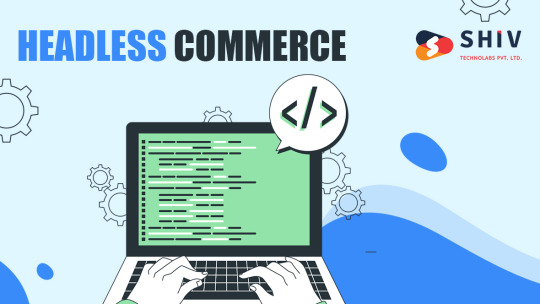
Headless commerce is a type of eCommerce architecture where the front-end or “head” is separate from the back-end commerce functionality. The architecture enables developers to push products, user profiles, and other eCommerce features across any screen or device through APIs and retain independent control over the content presentation layer.
Fundamentally, the back end is a robust engine that powers different front-ends such as websites, mobile apps, IoT devices, and even AR/VR. Companies that have adopted headless commerce see an average 24% increase in revenue.
Benefits of Headless Commerce in Mobile Development
Enhanced flexibility
With headless commerce, hybrid mobile app development services can develop or revamp mobile applications without restructuring the entire system. This flexibility is invaluable in an era where user interface trends and customer preferences evolve rapidly. Developers can implement new designs and adjust user interfaces to enhance user experience and engagement without backend modifications.
Improved user experiences
By adopting a headless approach, businesses can craft bespoke mobile experiences tailored to their audience’s needs and the specificities of mobile usage. This focus on creating a custom, streamlined user interface can significantly improve the app's performance, responsiveness, and accessibility, leading to better customer satisfaction and increased conversions.
Faster time-to-market
Headless commerce allows developers to work on the front end and back end simultaneously, thanks to their independence. This concurrency can dramatically reduce the time-to-market, as front-end developers do not need to wait for back-end changes to implement new features or updates. It also enables quicker responses to market changes or customer feedback, keeping the mobile app fresh and competitive.
Easier integration with modern technologies
The API-driven approach of headless commerce simplifies the integration of modern technologies, such as AR/VR, advanced analytics, and AI. These technologies can be integrated directly into the mobile app to enhance functionality and user engagement without disrupting backend processes.
Scalability
Headless commerce systems are inherently more scalable. As the front end is decoupled from the back end, scaling each component can be done independently based on demand. This is particularly advantageous for mobile applications expecting fluctuating user numbers and interaction levels.
Implementing Headless Commerce in Mobile Development
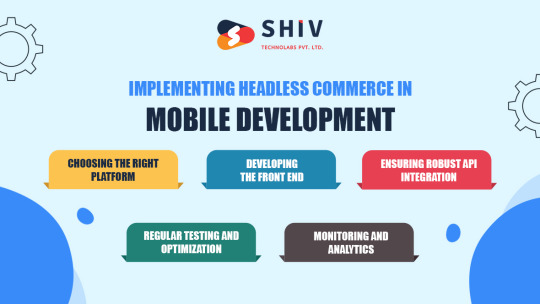
Choosing the right platform
The foundation of a successful headless commerce implementation is selecting a platform that robustly supports APIs and headless architectures. Platforms like Shopify, Magento, and BigCommerce offer extensive API support and are known for their flexibility and reliability in handling complex eCommerce operations. Select a platform that not only fits your current business needs but also offers scalability for future growth.
Developing the front-end
Develop the front end of your mobile app to create an engaging and responsive user experience. Utilize modern front-end technologies that support cross-platform functionality, such as React Native or Flutter. These frameworks allow developers to build a high-quality UI that operates smoothly across both Android and iOS devices, ensuring consistency in user experience no matter the device.
Ensuring robust API integration
APIs are crucial for connecting the decoupled front end of your application with backend services. Ensure that these APIs are efficient, secure, and capable of handling large volumes of data with minimal latency. Proper management of API calls is essential to maintain fast response times and a smooth user experience, which can be achieved through techniques like caching and batch processing.
Regular testing and optimization
Conduct continuous testing cycles throughout the app development process to ensure every component works correctly and efficiently. Use automated testing tools to streamline this process and detect issues early. Optimization should be an ongoing effort post-launch to ensure the application adapts to user feedback and evolving market conditions.
Monitoring and analytics
Implement monitoring tools to track the performance of your mobile app in real-time. Monitoring helps in quickly identifying and addressing any operational issues that may arise. Additionally, integrate analytics to gather insights on user behavior and app performance, guiding further refinements and feature developments.
Conclusion
The integration of headless commerce into mobile app development represents a significant shift towards more agile, user-centric, and scalable business operations. By decoupling the front end and back end, businesses gain the ability to innovate faster and meet the evolving expectations of modern consumers.
Leveraging the expertise of Shiv Technolabs, a reputable hybrid mobile app development agency, can further enhance this transition. With headless commerce, the possibilities are as limitless as the technologies it supports, making it an essential strategy for any forward-thinking business.
0 notes
Text
The Future of Hybrid mobile App Development: 5 Frameworks to Watch
There are various types of mobile apps such as Native, Hybrid, Web, and Progressive Web Apps. Out of all, having a hybrid mobile app has the most benefits since it has characteristics of both Native and Hybrid apps. Hybrid app frameworks are the ones that make it possible to create the most versatile and most advanced app types and in this blog, we will discuss the top 6 hybrid app development framework and their benefits and if you become convinced of the benefits of hybrid apps, we suggest you to hire dedicated hybrid mobile app developers to develop a best hybrid mobile app for your business.
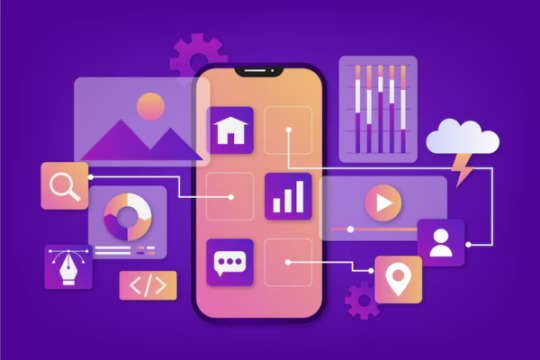
Top 5 Frameworks to Watch while Developing a Hybrid App
1. React Native
React Native is one of the most popular and effective frameworks for hybrid apps. It was developed by Facebook in 2015. React Native is written in JavaScript, Java, C++, Objective-C, and Python and is used by both iOS 9+ and Android 4.1+. The popular apps using React Native apps are Uber Eats and Skype.
There are various advantages offered by React Native such as features like live and hot reloading, intuitive modular architecture, 90% of the code can be reused across iOS and Android, and a Quick installation process, among others.
2. Flutter
Flutter is the only mobile SDK that provides reactive styles without any Javascript bridge. It was released in 2017 and developed by Google. It uses Dart language and is used by both iOS 9+ and Android 4.4+. The popular apps using Flutter are Hamilton and Alibaba.
Flutter offers benefits like fast code writing, a faster testing process due to a single codebase, and rich widgets that can be customized, interactive, and easily adaptable by different screens. Get help from hybrid app development services to get a hybrid app using the Flutter framework.
3. Ionic
Ionic has a powerful front-end Software Development Kit (SDK) that helps you enhance the functionality of an app. It helps in integrating an app with any Javascript framework such as Vue, React, and Angular. It was released by Drifty in 2013 and is written in JavaScript. It is backed by iOS 8+ and Android 4.1+ and apps such as Sanvello and JustWatch are using it.
The benefits of Ionic are it enables code once and runs it everywhere, enables integration with high-end plug-ins, is easy to adopt due to a low learning curve, and is easy and convenient to test.
4. Xamarin
Xamarin is one of the best apps used for cross-platform apps for iOS, Android, and Windows Phone in C# with Visual Studio. Xamarin uses the .NET platform and helps in continuous developer support, wide learning opportunities, and full technical backing by Microsoft. It was released in 2011 by Microsoft and written in C# language. Both iOS 9+ and Android 4.4+ support it and platforms such as Alaska Airlines, and Outback Steakhouse.
The benefits of Xamarin are it can share up to 90% of its codebase across major platforms, is easy to update, test, and maintain, and provides testing tools. You can get help from developers for hybrid mobile applications to incorporate Xamarin for mobile app development.
5. NativeScript
NativeScript helps in developing apps for mobile using JavaScript or TypeScript. This framework gives the experience of native user experience to each mobile OS platform. It was released in 2014 and was developed by Progress Software (formerly Telerik). It has been written in JavaScript, and TypeScript and backed by platforms such as iOS 9+, and Android 4.2+. Popular apps such as Daily Nanny, and Regelneef, among others.
The benefits offered by NativeScript are developer-friendly CLI (Command Line Interface), direct access to all iOS and Android APIs, use of XML-Esque-based markup language, and easy and quick app debugging.
Stay Updated in the World of Technology Using Hybrid App Development Framework!
Using the discussed hybrid app development framework can help your business grow rapidly. Having a hybrid app increases your reach and makes it convenient for your target audience to use and interact with your business. We suggest you consult with hybrid app development services to understand which framework is most suitable for your business and get a perfectly developed hybrid app for your business!
#hire dedicated hybrid mobile app developers#hybrid app development services#developers for hybrid mobile applications
0 notes
Text

Some Strategies for Using Mobile Apps to Expand Your Business
In today's digital age, mobile apps have become indispensable tools for businesses looking to expand their reach, enhance customer engagement, and boost revenue streams. NinjaTech, a frontrunner in innovative technology solutions, understands the pivotal role mobile apps play in business growth. Let's explore some strategies employed by NinjaTech and how you can harness the power of mobile apps to take your business to new heights.
Customer-Centric Design: NinjaTech prioritizes user experience by crafting mobile apps with intuitive interfaces and seamless navigation. Emulate this strategy by conducting thorough research to understand your target audience's preferences and pain points. Incorporate user feedback to continuously refine and optimize your app for enhanced usability.
Personalized Marketing Campaigns: Leverage the data analytics capabilities of mobile apps to segment your audience and deliver personalized marketing messages. NinjaTech utilizes advanced algorithms to analyze user behavior and preferences, allowing for targeted promotions and tailored recommendations. Implement similar strategies to foster meaningful connections with your customers and drive conversions.
Integration with Emerging Technologies: Stay ahead of the curve by integrating emerging technologies such as augmented reality (AR) and artificial intelligence (AI) into your mobile apps. NinjaTech harnesses AR to provide immersive shopping experiences and AI-driven chatbots for proactive customer support. Explore innovative ways to leverage these technologies to differentiate your brand and captivate your audience.
Seamless Omnichannel Experience: Break down silos between online and offline channels by offering a seamless omnichannel experience through your mobile app. NinjaTech enables customers to seamlessly transition between digital and physical touchpoints, facilitating a cohesive shopping journey. Implement features like in-app purchases, click-and-collect options, and real-time inventory updates to streamline the customer experience across channels.
Continuous Iteration and Improvement: Adopt an agile approach to app development, focusing on continuous iteration and improvement based on user feedback and market trends. NinjaTech regularly releases updates and enhancements to address performance issues and introduce new features. Embrace a culture of innovation within your organization to stay responsive to evolving customer needs and technological advancements.
Robust Security Measures: Prioritize the security of customer data by implementing robust encryption protocols and multi-factor authentication mechanisms. NinjaTech employs industry-leading security measures to safeguard sensitive information and build trust with customers. Invest in regular security audits and compliance certifications to demonstrate your commitment to data protection and privacy.
Strategic Partnerships and Collaborations: Forge strategic partnerships and collaborations to enhance the functionality and value proposition of your mobile app. NinjaTech collaborates with leading payment gateways, logistics providers, and third-party developers to offer seamless integrations and expanded services. Identify complementary businesses and explore mutually beneficial opportunities to enrich the user experience and drive business growth.
Conclusion:
you can harness the full potential of mobile apps to expand your business, delight customers, and stay ahead of the competition in today's dynamic marketplace. Seize the opportunity to innovate and evolve, guided by a commitment to excellence and customer-centricity.
#Custom Mobile App Development Services#Top Mobile App Development Company#Hybrid Mobile App Development Services
1 note
·
View note
Text
Different Mobile App Development Platforms: A Complete Guide
In today's modern digital era, app development platform plays a vital role in developing any app. With options like iOS, Android, or both making the right choice requires a deep understanding of the advantages and disadvantages of each approach. Additionally, selecting the best-suited programming languages and frameworks is main step for the success of your app. In this article, we'll dive into these topics to help you navigate the complexities of mobile app development platforms.
Understanding Mobile App Development Platforms
Let's start by examining the two primary platforms: iOS and Android.
iOS App Development
iOS, the operating system developed by Apple, powers devices like iPhones, iPads, and iPods. When you develop an app for iOS, you're targeting Apple's proprietary system.
Advantages of iOS Development:
- Top User Experience: iOS devices are known for their sleek design and attractive interfaces, ensuring a seamless user experience.
- Strong Marketing Presence: Despite its smaller market share, iOS users tend to spend more on apps and in-app purchases, making it a profitable platform for developers.
- Consistent Hardware and Software: Apple devices adhere to a standardized configuration, simplifying development and testing processes.
Disadvantages of iOS Development:
- App Store Guidelines: Apple enforces strict guidelines for app submission due to security reasons of a user, leading to longer review times and potential rejections.
- Limited Device Compatibility: Developing exclusively for iOS means excluding Android users, potentially limiting your app's reach.
Android App Development
Android, developed by Google offers a diverse range of devices from various manufacturers.
Advantages of Android Development:
- Market Dominance: Android possess the largest global market share, providing access to a vast user base.
- Flexible Development Environment: Android offers greater customization and integration with third-party services.
- Diverse Hardware Options: Android devices come in various form factors and price ranges, attracting a diverse audience.
Disadvantages of Android Development:
- Fragmentation: The Android ecosystem is fragmented, with numerous device manufacturers and OS versions, making it challenging to ensure consistent performance and results in lots bugs.
- Security Concerns: Due to its open nature, Android is more susceptible to security threats and malware compared to iOS.
- Monetization Challenges: While Android users are abundant, they tend to spend less on apps and in-app purchases, posing challenges for monetization.
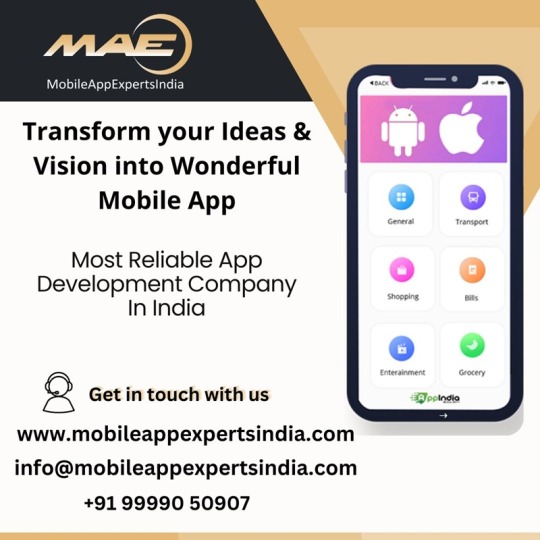
Native vs. Hybrid App Development
Once you've chosen your platform(s), the next decision revolves around native or hybrid development.
Native App Development:
Native apps are built separately for each platform using platform-specific languages and tools (Swift or Objective-C for iOS, Java or Kotlin for Android).
Advantages of Native Development:
- Optimized Performance: Native apps leverage the platform's capabilities, resulting in superior performance.
- Access to Platform-Specific Features: Developers can utilize platform-specific features for a rich user experience.
- Better User Engagement: Native apps are perceived as more reliable, leading to higher engagement.
Disadvantages of Native Development:
- Higher Costs: Maintaining separate codebases or databases for each platform can be costly.
- Longer Time to Market: Developing and releasing separate versions may lead to longer time to come in market.
Hybrid App Development:
Hybrid apps use web technologies (HTML, CSS, JavaScript) to create a single codebase that runs on multiple platforms.
Advantages of Hybrid Development:
- Cost-Effectiveness: Reusing code reduces costs and time to come in market.
- Simplified Maintenance: Updates can be deployed simultaneously across platforms.
- Cross-Platform Compatibility: Hybrid apps can run on both iOS and Android devices.
Disadvantages of Hybrid Development:
- Performance Limitations: Hybrid apps may suffer from performance issues compared to native apps.
- Limited Access to Native Features: Access to platform-specific capabilities may be restricted.
- Dependency on Third-Party Tools: Hybrid development often relies on third-party frameworks.
Choosing the Right Programming Languages and Frameworks
For native development, use Swift or Objective-C for iOS, and Java or Kotlin for Android. For hybrid development, popular frameworks include React Native, Ionic, and Xamarin.
Conclusion
Choosing the right mobile app development platform is pivotal for your app's success. By weighing the pros and cons of iOS and Android development, and understanding the differences between native and hybrid approaches, you can make an informed decision that aligns with your project requirements and business objectives. Additionally, selecting the appropriate programming languages and frameworks ensures a smooth development process and optimal performance across all platforms. With careful consideration, you can create a mobile app that captivates users and achieves your desired outcomes in today's competitive market.
#android app development#ios app development#app development#ui ux design#web development#top android app development services#ios and android app development#android application development company in chennai#ios application development services#ios app developers#ui ux company#ux designs#ui designs#ux ui design#hybrid app development#app development company in india#app development consulting#top mobile app development
0 notes
Text
Mobile App Development Solutions by Mobiloitte
The potential of your business with Mobiloitte.s Mobile App Development solutions. From conceptualization to deployment, our expert team crafts bespoke apps tailored to your needs. Seamlessly integrate cutting-edge features, intuitive design, and robust functionality to captivate your audience and drive growth. Elevate your brand with Mobiloitte. Mobile App Development solutions. – where innovation meets excellence.
#mobile application service provider#mobile application development services#manufacturing mobile app development#native app development services#hybrid app development services#android app development#ios mobile app development#cross platform mobile development#mobile game development company
0 notes